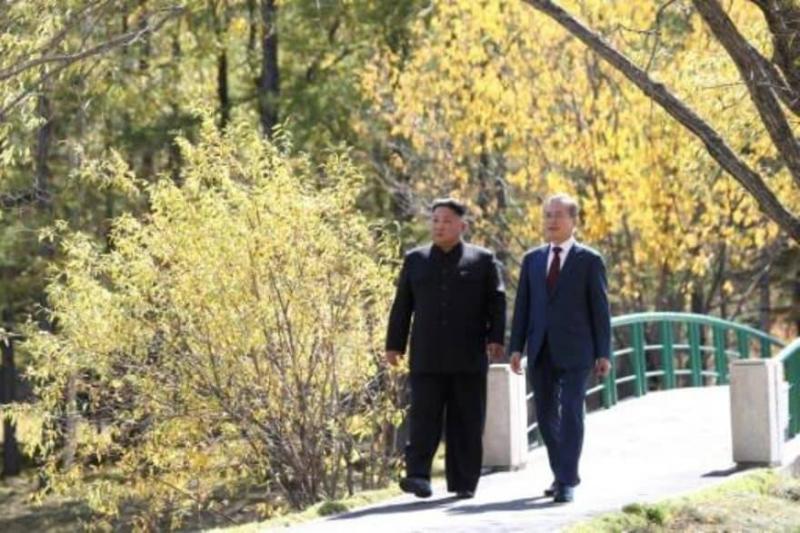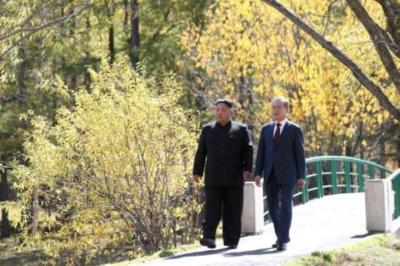A senior American diplomat issued a renewed call for unconditional dialogue with North Korea on Monday, affirming that the United States harbors no hostile intentions toward Pyongyang amid recently heightened tensions between the two. U.S. Special Envoy for North Korea Sung Kim told reporters, "We will continue the diplomatic path with North Korea to make tangible steps that improve the security of the United States and our allies."
The American diplomat's statement came after his meeting in Washington with South Korean counterpart Noh Kyu-duk, ahead of a trilateral meeting they will have on Tuesday with senior Japanese diplomat Takahiro Funakoshi.
The U.S. diplomat emphasized that allies bear "the responsibility for implementing United Nations Security Council resolutions," referring to the international sanctions imposed on North Korea, which its leader Kim Jong-un is trying to lift. Kim accused the United States last week of being the "root cause" of tensions on the peninsula, disregarding the reassuring statements from the U.S. administration toward his country.
Washington has repeatedly called on Pyongyang for dialogue and has denied having any hostile intentions toward Kim's regime, but the North Korean leader remarked last week that there is no reason for him to "believe that (the United States) is not hostile" toward his country, stressing that U.S. actions contradict its words in this regard.
The Biden administration has repeatedly expressed its readiness to meet with North Korean officials anywhere and anytime without preconditions, as part of efforts to denuclearize the Korean Peninsula, but Pyongyang has rejected such offers.
North Korea is under international sanctions due to its nuclear and ballistic missile programs, which have made significant advances under Kim's rule. In recent weeks, North Korea has tested highly advanced missiles, including a long-range cruise missile, a hypersonic glide vehicle, and an anti-aircraft missile.
North Korea is prohibited under Security Council resolutions from developing its nuclear or ballistic arsenal, but it disregards this ban, which has led to multiple international sanctions. In 2017, the Security Council, at the initiative of then-President Donald Trump, issued three resolutions imposing stringent economic sanctions on Pyongyang following its nuclear and missile tests.
So far, North Korea has shown no willingness to give up its arsenal, which it claims is necessary for its defense against any attack from Washington, a close ally of Seoul, which has approximately 28,500 troops stationed in South Korea to protect it from its northern neighbor.
Nuclear talks between North Korea and the United States have been stalled since the collapse of a summit held in Hanoi in 2019 between Kim and then-President Donald Trump, due to the concessions required from Pyongyang in exchange for easing sanctions.




